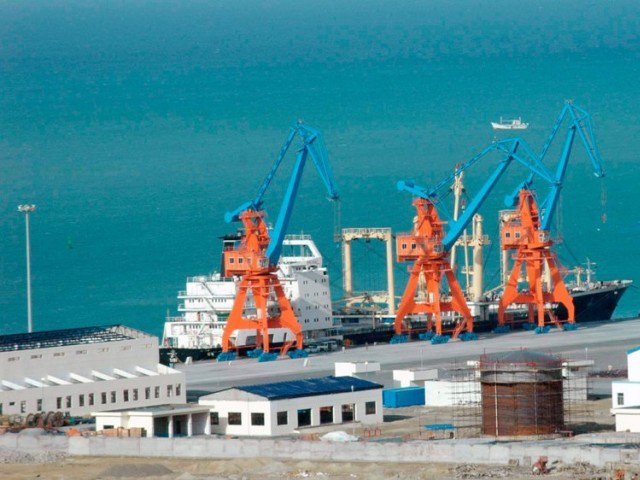LAHORE: Technological advancement and the China-Pakistan Economic Corridor (CPEC) hold key to the country’s progress, speakers at a moot agreed on Tuesday.
The conference ‘Pakistan Leadership Conversation (PLC) 2018’ themed ‘Collective Vision for an Emerging Pakistan’ was organised by the Association of Chartered Certified Accountants (ACCA), Pakistan. The discussion was aimed at formulating forward-thinking policy choices to drive Pakistan’s economic growth and social development.
Akhuwat Foundation Founder Dr Amjad Saqib was the guest of honour while Nestlé Pakistan Chief Executive Officer (CEO) and Overseas Investors Chamber of Commerce and Industry (OICCI) President Bruno Oilerhoek was the chief guest at the occasion. The welcome address was delivered by ACCA Pakistan Head Sajjeed Aslam.
The first of the two-panel discussions at the conference was titled “The Race for Relevance – social, mobile, cloud and AI – talent needs” and was based on the importance of technology, data, social media, cloud and Artificial Intelligence (AI). The keynote speaker was Inov8 CEO Hasnain Sheikh and the discussion was moderated by ACCA Pakistan MENASA Regional Head of Members Affairs and Advocacy Haroon A Jan. The members of the panel included Abacus Consulting Managing Director Abbas Ali Khan, StationeryX Chairman Zeshan Afzal, Excellence Delivered (EXD) CEO Sajjad Syed, Nestlé Pakistan Head of Finance and Control Syed Saiful Islam and Finca Branchless Banking Business Head Tughral Ali.
The panel discussed the importance of the new trends in technology and the importance of keeping up to date with them in order to ensure the economic progress of the country. Abacus Consulting Managing Director Abbas Ali Khan said that “The importance of technology and AI has increased in the recent years. Due to the large influx of data, it has become impossible to humanly interpret and make sense of big data, hence, what we need is the help of technology, computers and AI in order to better analyse and make sense of the what the data is implying.”
On the other hand, Finca Branchless Banking Business Head Tughral Ali stressed the need for asking the right questions. “Efficient and effective analysis of data does not only require the right tools, but also requires the interpreter to ask the right questions. The true sense of data can never be made if the wrong questions are asked,” he stated.
Moreover, Tughral Ali also stressed the importance of ensuring data security. “I have worked in the telecom sector, and it’s really frightening to see the amount of data these companies have related to their consumers. In such a scenario protecting the customers privacy and the data should be the utmost priority, and policies should be devised to ensure that.”
When asked that to whom the data Finca gathers belongs to and what the organisation is doing to ensure its confidentiality, he replied that the data is the property of the organisation which has a strict policy to not share it with any third party. However, he added that in some cases in order to deliver value various parties get together and there is a need to figure out what needs to be done in such scenarios.
Tughral Ali and Zeshan Afzal also stressed the need to work towards the inclusion of rural economy into the mainstream economy whereas EXD CEO Sajjad Syed viewed the development of human capital as the most important factor to increase economic growth.
The second-panel discussion titled, ‘CPEC – Belt and Road Initiative – are we ready to ride the wave of growth’ was moderated by Abacus Consulting Regional Director Fatima Asad. CAMCO CEO Ayla Majid was the keynote speaker. Members of the panel included Punjab Board of Investment and Trade (PBIT) CEO Jahanzeb Burana, CPEC Project Director Hassan Daud Butt, MLCC Senior Partner Omer Zaheer Meer, Rozee.pk Founder Monis Rahman and Consortium for Development Policy Recearch Honorary Fellow Hasaan Khawar.
The PBIT CEO pointed out that the textile, cement and the fertiliser sectors are expected to benefit the most from the corridor, however in the long run logistics and transportation sector are also expected to experience growth. He also added that the services sector might also potentially benefit if the Chinese government decides to relocate some of its industries to Pakistan.
The CPEC project director when asked regarding the steps the government is taking to ensure the success of CPEC, said that “The government is holding a series of discussions, visiting all the chambers and is consulting the private sector in order to take their input and inform them about the opportunities that CPEC offers.”
“Special Economic Zones (SEZs) are key pillars of CPEC. In Punjab already one SEZ has been established with major brands coming in. We plan to build on this momentum and are looking to partner with Chinese developers who can help us in developing SEZs as well as attracting the right kinds of industries from China,” MLCC Senior Partner Omer Zaheer Meer added.
On the other hand, Monis Rahman, the Founder of Rozee.pk stressed the need to capture jobs that are created as a result of the corridor. “Currently there are two kinds of booms taking place in Pakistan. One is the economic boom due to CPEC, the other is its multiplier effect on job creation. We need to seize this opportunity in a deliberate way and the government must play a much more progressive role in this matter. Recently Saudi Arabia launched ‘Saudisation’ policy under which firms have to employ a certain percentage of Saudi workers. Such a policy should also be implemented in Pakistan,” he said. The CPEC project director while replying to Monis’s comments assured that incentives will only be given to those organisation’s that employ 80 per cent locals in their workforce.




